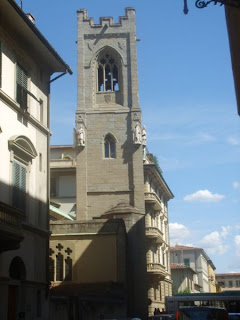Donald Fraser's preaching. The Preacher's Power

Yesterday we gave part of Donald Fraser's description of 'The Preacher's Theme' from his sermon 'Successful Ministry'. Today we give Fraser's description of 'a Preacher's power'. All of it, as it turns out, to the close of the sermon.
"It is not in him, but in God.
"No sensible preacher has any objection to the inferior wisdom which the world admires in its own place; but it is not the best wisdom. No sensible preacher has any objection to persuasive words and oratorical skill; only he will look to a higher source for soul-convincing, soul-saving energy. To quote an expression from the second epistle, 'The Excellency of the power is of God and not of us' (2 Cor. 4.7).
"Alas for the eloquent preaching that passes as a mere well-modulated sound, and the intellectual preaching that holds no man by the conscience, and the vociferous preaching that shouts, and signifies little! Let us do our best, but power belongs to God.
"Some one may ask, Why so much insistence on power? Great is truth, and it will prevail. Now there is a reason. To teach men the truth that is in Jesus is a very different thing from teaching one of the arts or sciences. In the latter case one may have to encounter dulness or lassitude of mind - nothing worse - and this a skilful teacher may overcome. But in the Gospel, though the theme is one of heavenly wisdom, it is met not with dulness and lassitude only, but with moral resistance and spiritual obtuseness, which no skill of teacher or preacher can remove. The Holy Spirit must demonstrate such truth to the hearer's conscience and with power impress it on his heart.
"No doubt such a man as Paulcould have made some impression on the Corinthians by the cogency of his reasoning and the force of his powerful personality; but it would have been to little purpose. Short-lived and feeble would have been a faith which stood in human wisdom and not in Divine power.
"We want the prsence of God. The words and usages of Christianity have become familiar to us. The habit of church attendance is formed, and with it that of listening to religious discourses, though quite possibly without much thought or feeling; but where is He who man banish the dulness of routine, and break the form of prejudice, and overcome the habit of procrastination? Who can impress the frivolous and abase the proud, arrest minds that engross themselves with trifles and elevate minds that crawl after earthly gain? Who can wound and heal, warn and win, kill and maske alive? Who is sufficient for these things?
"Let us rely on God, and preach Christ in the Spirit. Hear, and your souls shall live. Men speak the Gospel. God gives the power to preach and the power to believed. He can make your conscience start and your heart melt within you, expose your sins, shatter your excuses, cast you down at the Saviour's feet, give you peace in believing, kindle in you desires and hopes, create in you a clean heart, life you up, and lead you on in the steps of Jesus.
"The teaching of God is not in word, but in power."
(Our illustration shows the old York Presbyterian Church (now URC), opened on November 6th 1879 by Donald Fraser)
Labels: Donald Fraser



















